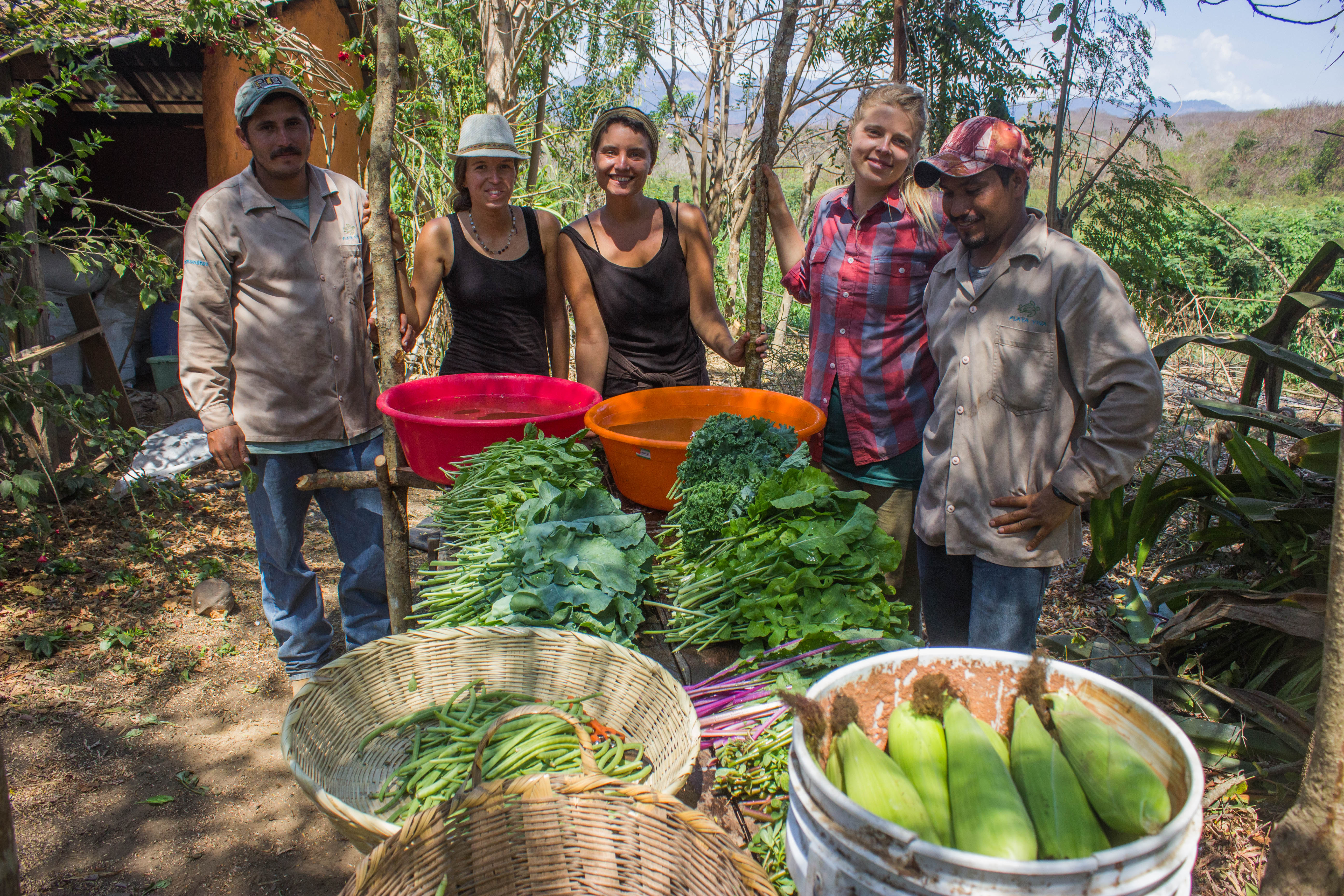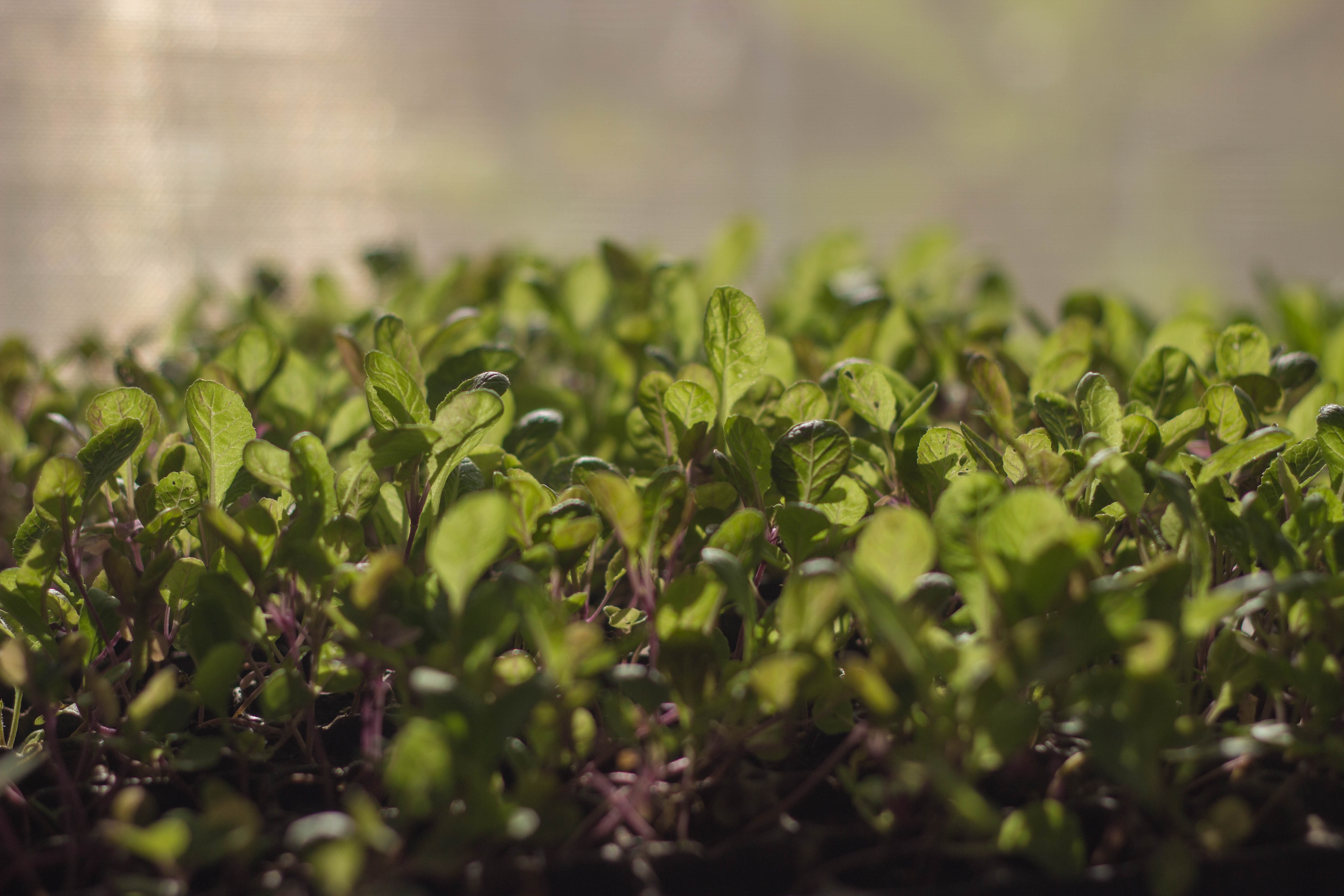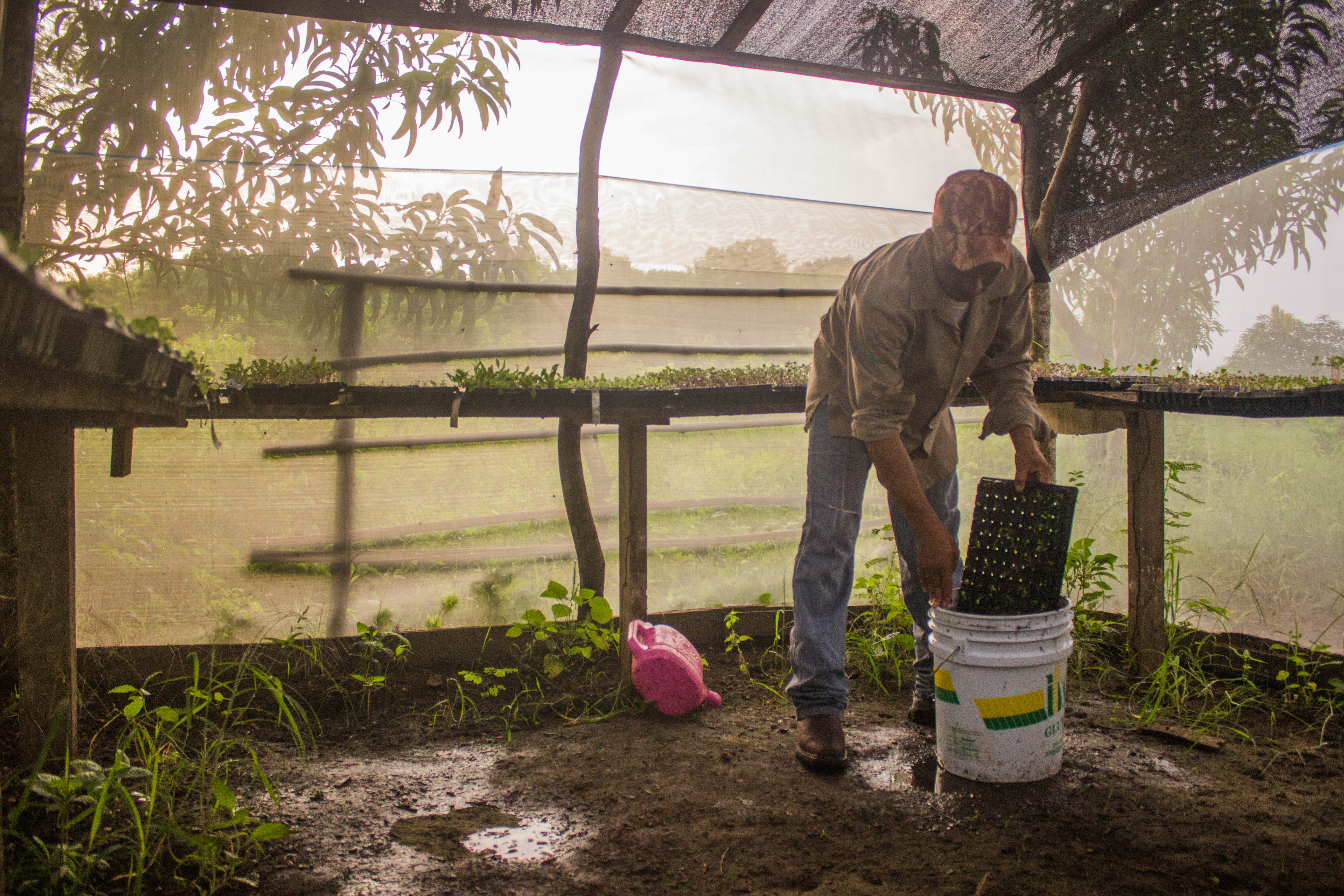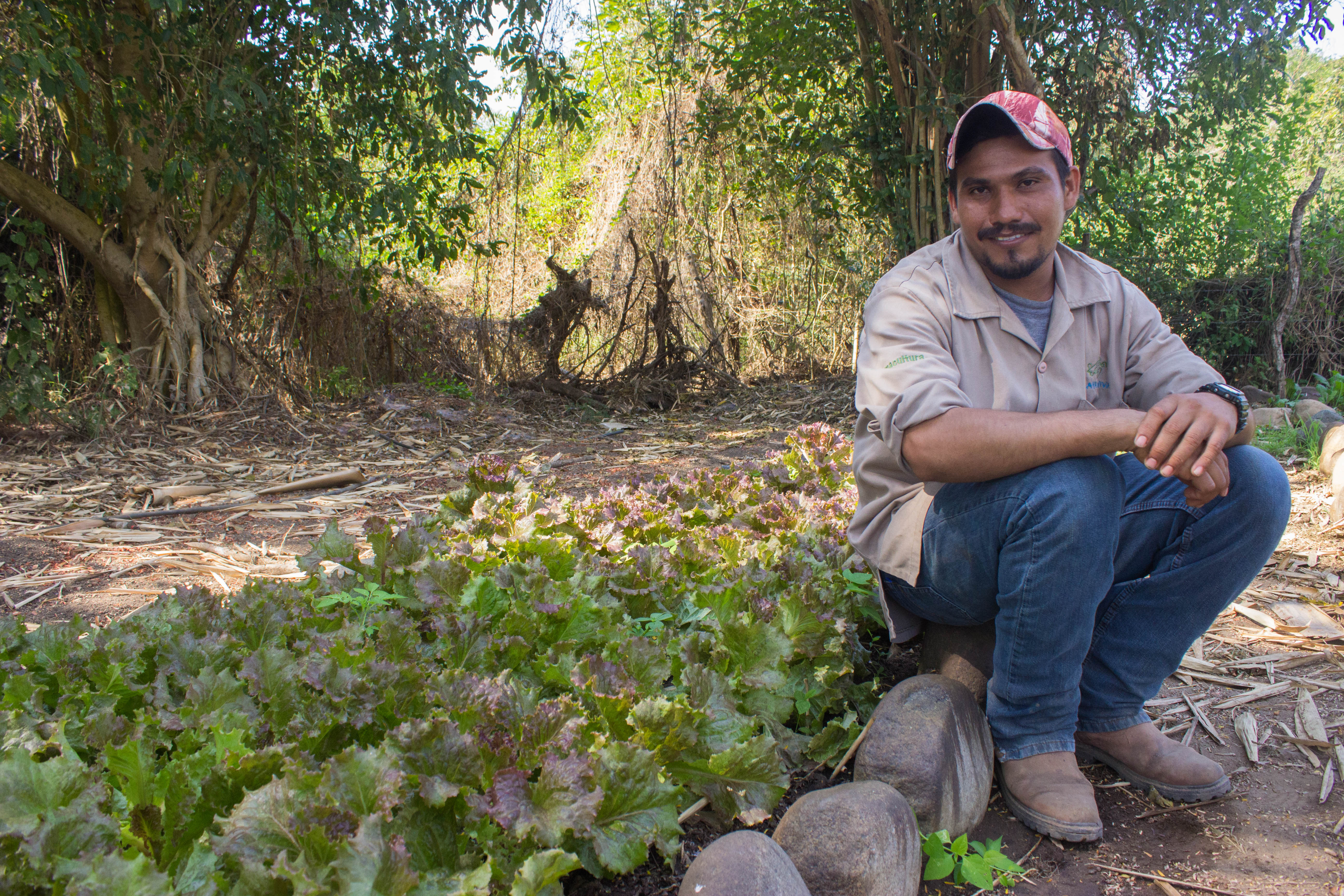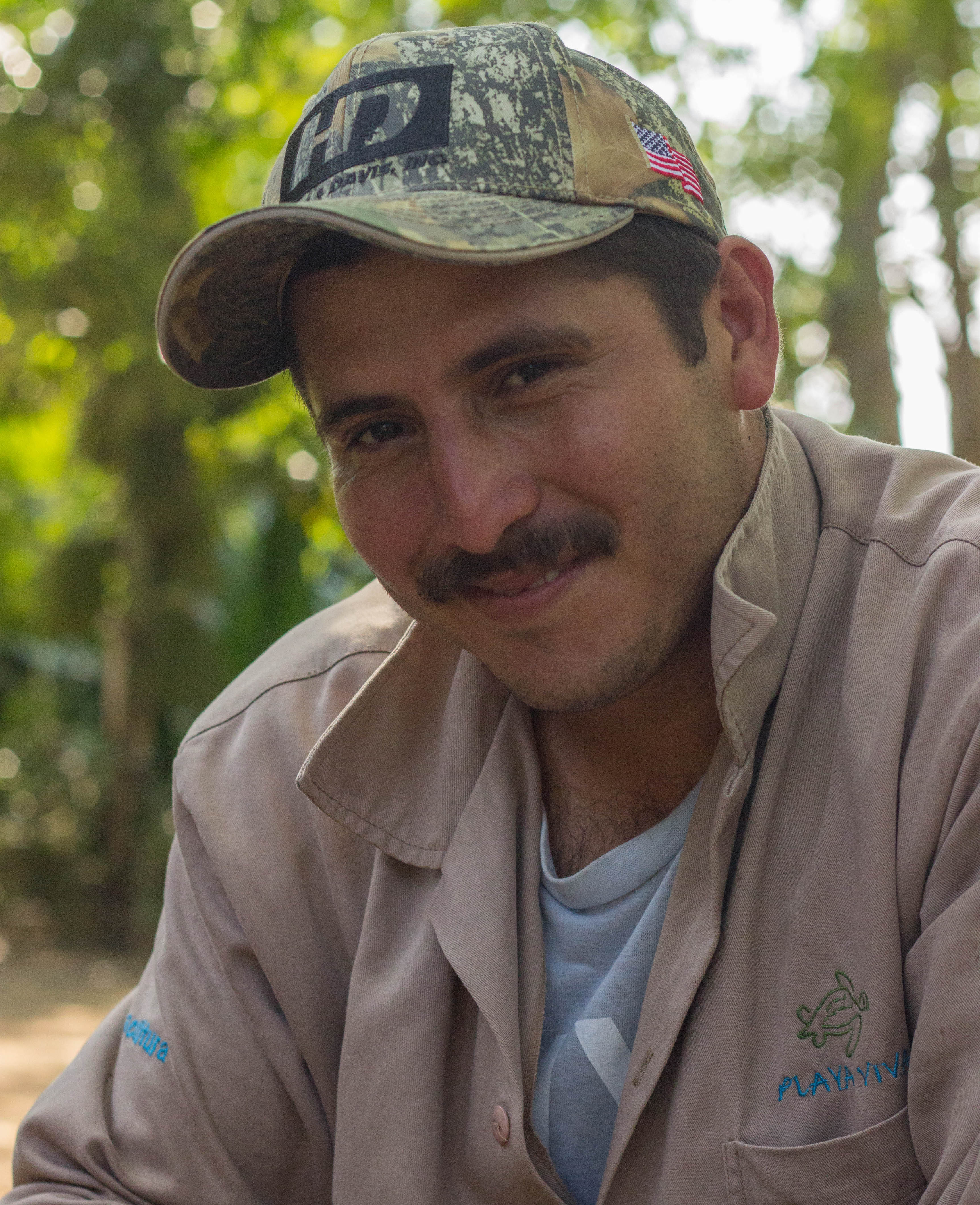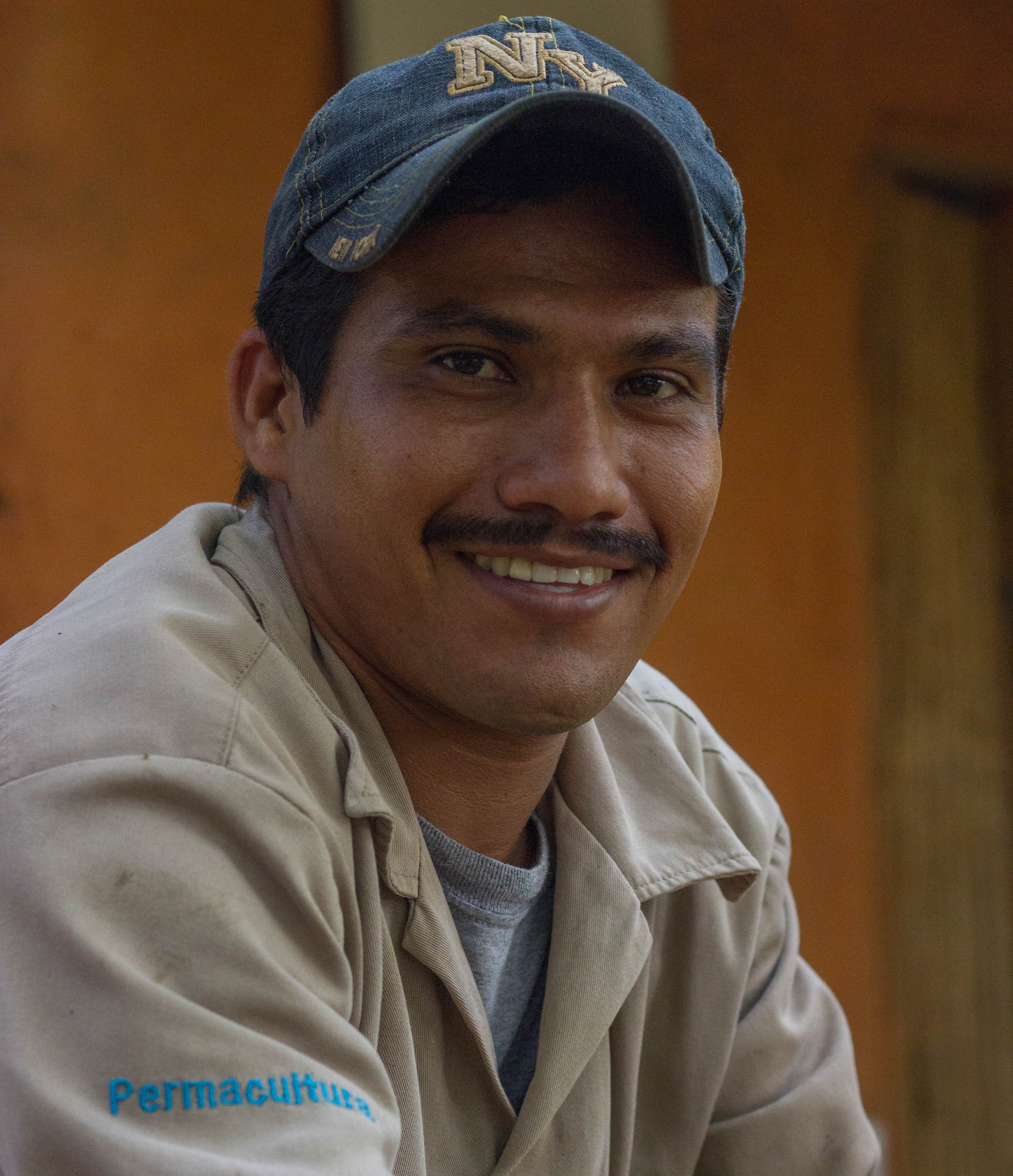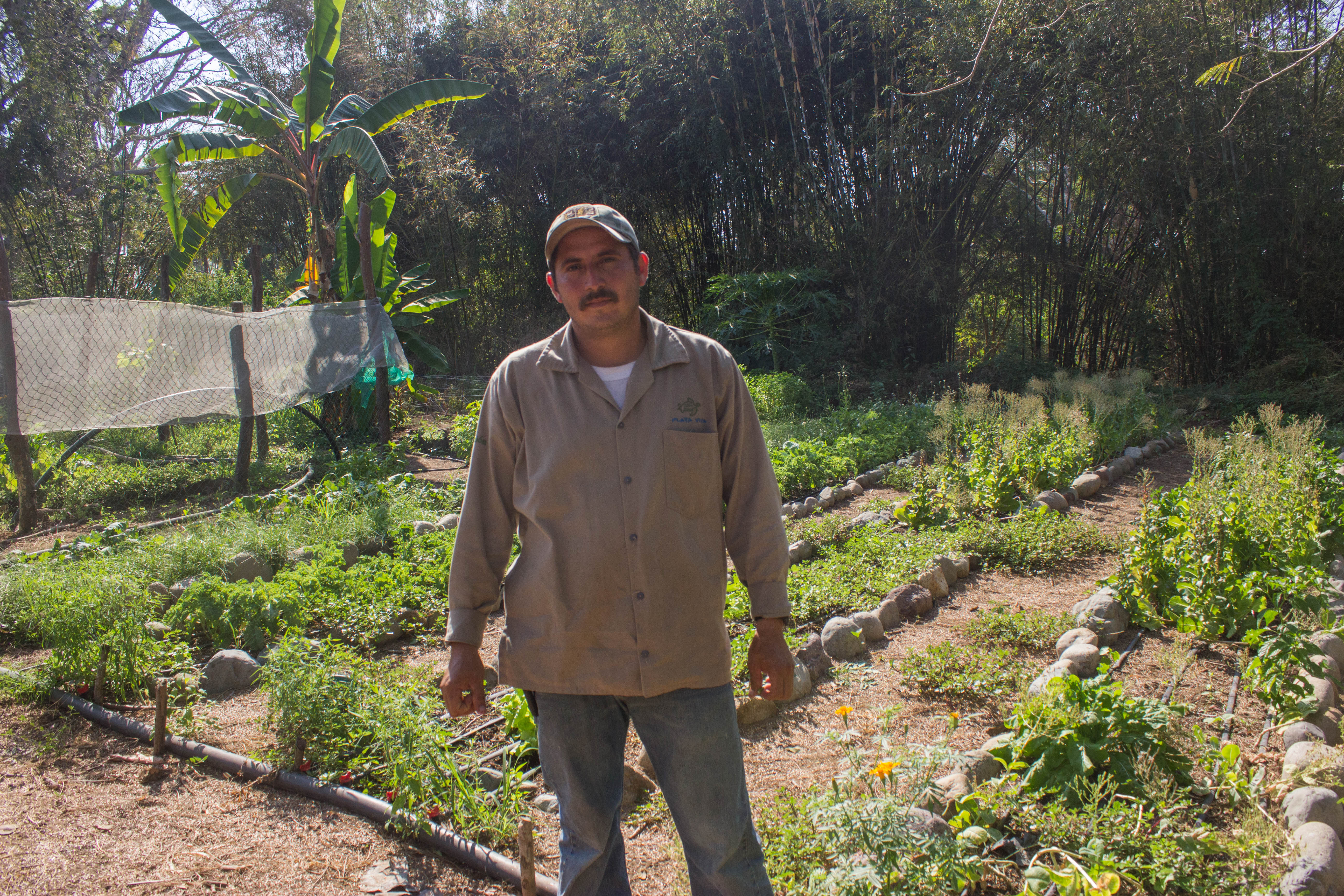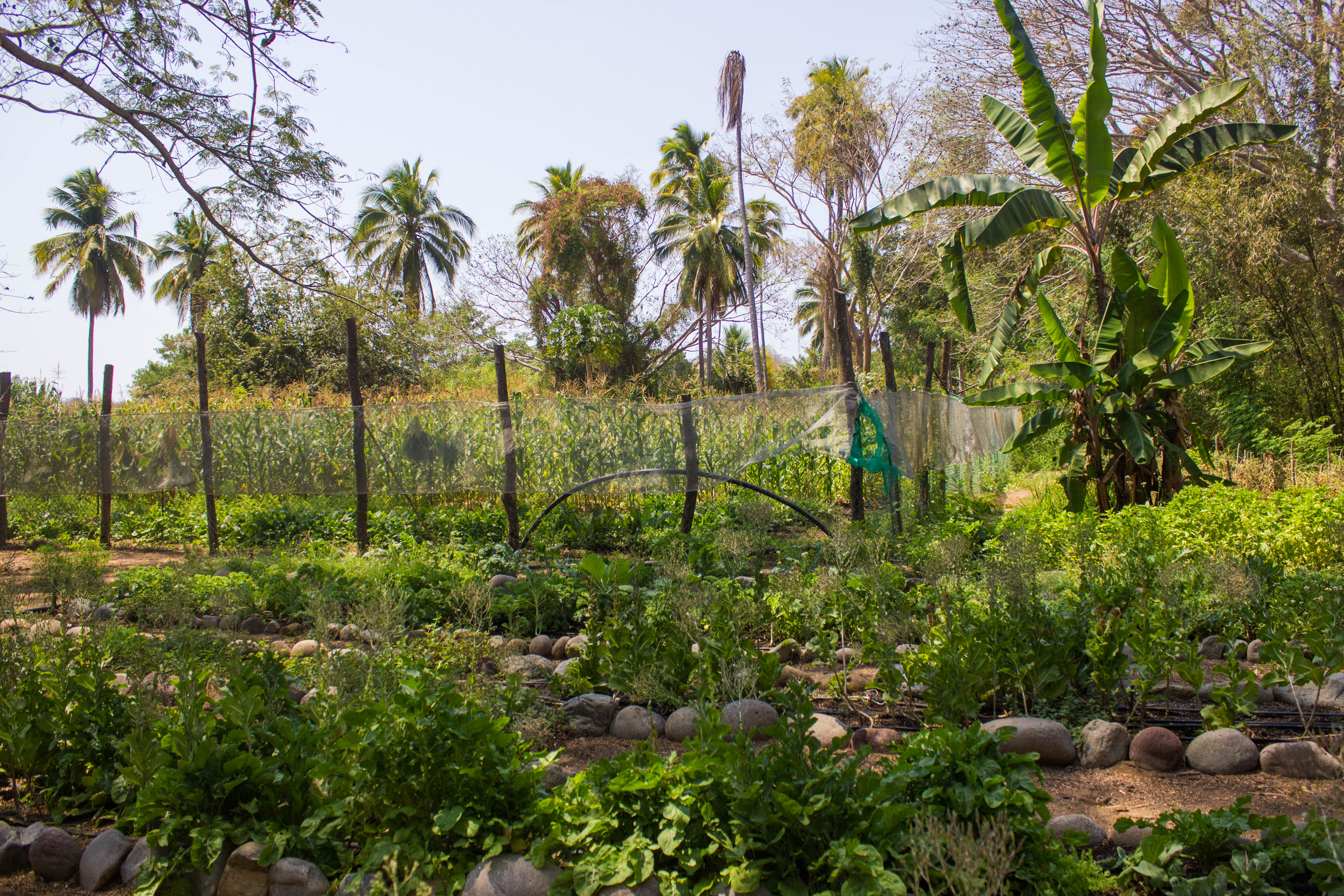A Story of Regeneration: Moving towards regenerative agriculture on the southern pacific coast of Mexico
At Playa Viva, every aspect of our operation attempts to go beyond low-impact and actually make the place—the land and our community—better than it was. In other words, we practice regeneration.
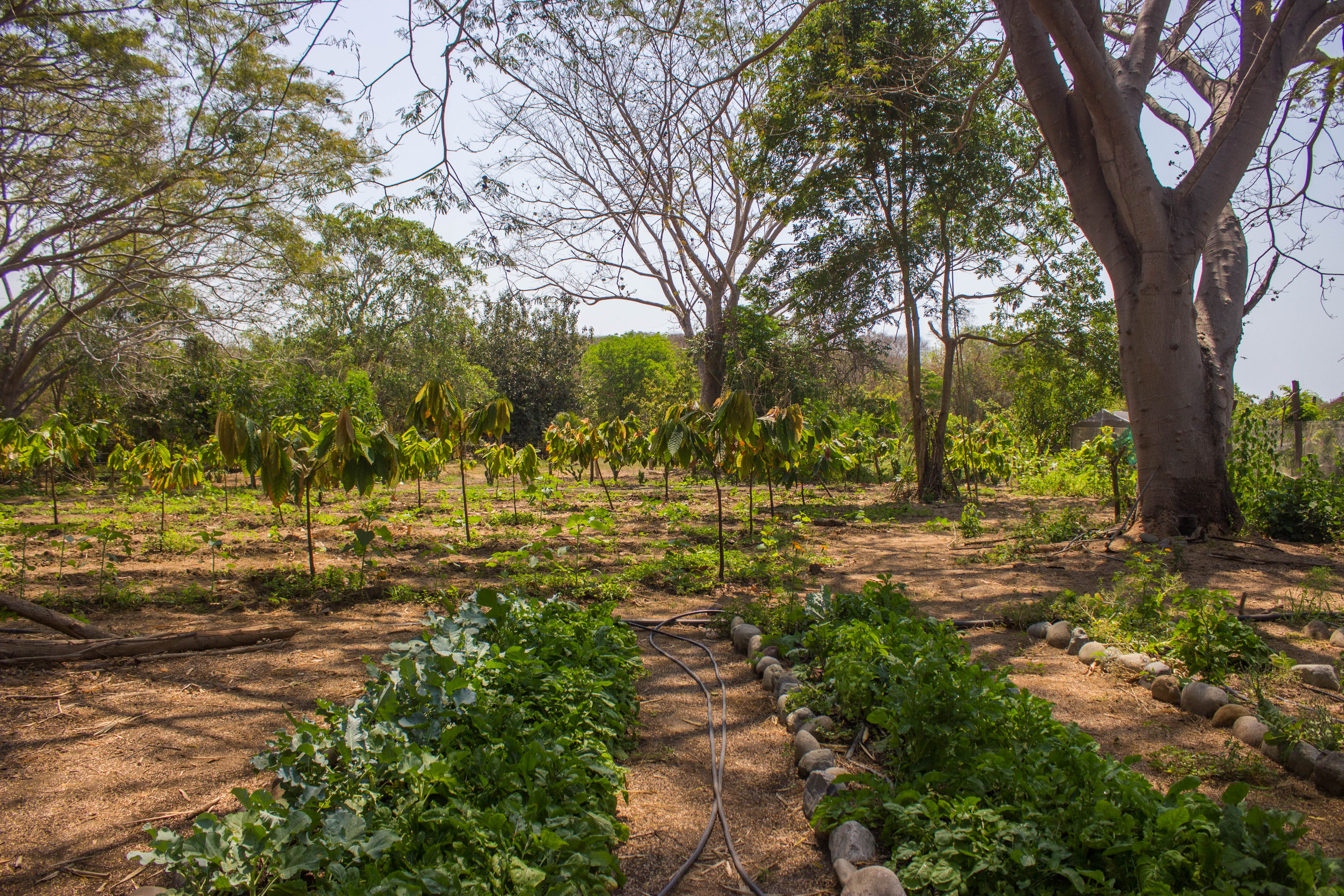
Regeneration applies to everything that we do. What we do in food production is no different; we practice what’s called regenerative agriculture.
You might ask: what makes agriculture “regenerative”?
Regenerative agriculture is not just organic, and doesn’t just “do no harm”, but it actually improves the land. It represents a wide array of techniques that actively work to rebuild and regenerate soils, enhance biodiversity, increase resilience to climate change, and strengthen the health and vitality of farming and ranching communities.
As the lead for Playa Viva’s social and environmental impact, I wanted to know… so are we actually doing that?
On an environmental level, I knew from working with our Farm Manager and Permaculture Specialist that the type of agriculture we are practicing is regenerative … but what about the social component? Are we raising awareness about sustainability? Are we changing perspectives? And if we’re raising awareness, is that awareness spreading to change agricultural practices in the region?
To begin to answer these questions, I decided to start by sitting down with the two people who grow our food: José Garza and Abel Vejar, both from the neighboring town of Rancho Nuevo. I wanted to know how they got into farming, how much they knew about organic farming and sustainable agriculture prior to joining the team, and how working for Playa Viva as a whole has (or hasn’t) impacted them.
But before I tell you what I discovered, I need to give a little context:
Today, most farmers in this region of Mexico hold a strong dependency on fertilizers and herbicides. During the mid-twentieth century, due to numerous policies and reforms, Mexico’s agrarian landscape was in a precarious state. Many rural areas of the state (as well as across the country) were suffering from poverty, land disputes, and hunger. In response to this, the Mexican government, in partnership with the United States, launched the Mexican Agricultural Program in 1943, which aimed to combat rural poverty through the use of modern agricultural technology and expansion. Through financial and technical support from the Rockefeller Foundation, the program created fertilizer subsidies, promoted the use of herbicides and pesticides, and distributed new hybrid varieties of maize and wheat, and trained farmers how to use them.
Coupled with a booming tourism industry, the coastline of Guerrero—once a verdant coastal forest replete with mangroves—was dramatically transformed through slash-and-burn agriculture into monoculture mango, tamarind, and coconut groves, and deforested for cattle ranching.
This created a significant decrease in biodiversity along with a reliance on fertilizers, herbicides and pesticides to grow food for short-term gain in disregard of long-term social and environmental impacts. These developments have had severe impacts not only on the environment but also on the local economy. Lack of crop rotation, unbalanced crop nutrition and intensive use of pesticides and herbicides have all led to soil degradation, declining yields, declining water quality, and have greatly altered the rural landscape.
The current situation is a major concern for local farmers and policy makers, who are looking for ways to improve standards of living while strengthening the natural resources that abound.
In response, Playa Viva, along with its partner business Gente Viva, is working to provide solutions through the promotion of regenerative agriculture. The mission of Gente Viva is to create a resilient food system that provides sustainable economic opportunities to farmers by connecting them with international, domestic and local distribution for their healthy, organic produce.
So let’s begin… What did I learn from my conversations with our food production team?
Abel Vejar, 31, and José Garza (better known as “Güero”), 31, are both from the same neighboring town of Rancho Nuevo. (Actually, they’re cousins born on the same day, same year, one hour apart!) They each come from slightly different farming backgrounds: Abel hadn’t had much experience working on farms—only some experience with fruit trees—while Güero had worked the land nearly his whole life, but never farmed organically. I wanted to know more about these two: how they made their way to Playa Viva, how and why they became farmers, and what impact working in organic food production has had on their lives.
Q: When and how did you make the decision to be a farmer?
Abel: Well, I first started working in construction here at Playa Viva. I worked for about three months and remember seeing the lettuce in the greenhouse—they really caught my eye … They’re what really caught my attention and the reason why I wanted to come here to work and learn. I really like the job as I’m learning so many things here, which is most important to me: learning. Also, in respect to the lettuce, I had never seen them before nor knew them until now. I had never grown them—other fruits, yeah, like mango, banana, coconuts, all those kinds of fruit that we have here. But I had never seen these lettuces and they stood out to me because they are really beautiful and really tasty. And yeah, I really like working in food production, because nature really calls me.
Güero: I personally was very young when I started working the land. I was eleven years old when I started to work on my own in farming to grow corn seasonally. I was growing corn, pumpkin, cane, beans—the essentials. And from there I began to familiarize myself with the land—I was learning to harvest, learning to work with a machete, learning to plow. But yeah, I was little when I began to work the land—well, work it alone. I started working the land with my family when I was really little, maybe 7, 8 years old—the easier stuff—but I started doing farm work then. Here in Playa Viva, I started just a little while ago. About three years ago I started working here, first at the hotel as a chauffeur, then I worked in permaculture for about another six months, and then I started here in food production. I’ve been working in food production for about two seasons. It feels like I’m still just learning—lots of things that I still don’t know—but that I’m going to be learning a lot.
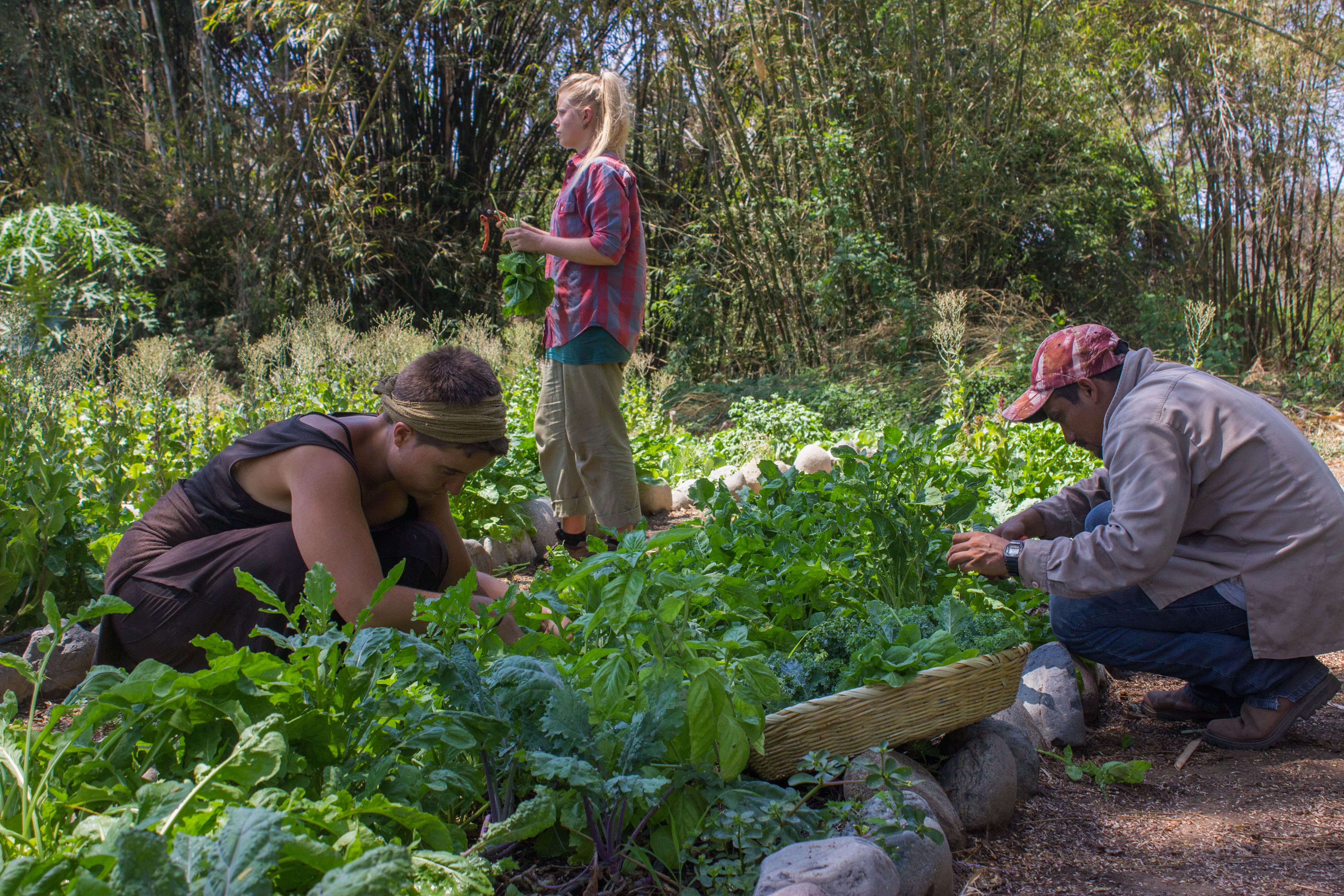
Q: Have you always farmed organically? Did you know much about organic farming before working for Playa Viva?
Abel: No—the fruit trees I worked with, we worked with chemicals. Because to clean them, you needed liquids; to get the tree to produce fruit, you used chemicals; you also used liquids to fumigate the fruit to get rid of insects, so yeah I came in not knowing much [about organic farming]. It’s here where I’m learning a lot. Here everything that we work, everything that we bring [to the kitchen], everything is organic, all the plants that we grow are worked purely by hand and not with chemicals.
Güero: Before, we used to use chemicals all the time. We used pesticides for weeds—not the worst ones—but in any case we still used them. And here at Playa Viva, from the start I began going to courses and started learning things, primarily that they aren’t good for your health. But while you don’t see it, you don’t believe it. Then later on you start to see that yeah it’s good to eat food grown without chemicals … I actually didn’t know anything about organic agriculture [before working at Playa Viva]. In the past, when we planted tomatoes, we tried to put as little chemicals as possible, but we always used them, when there was a pest or anything. But organic-organic, I never farmed organically myself. Not until two seasons ago, so now about a full year working on my own. Before I was working with Sapo (former head of food production), so we spent a season together, planting, and that’s where I started learning and they started bringing me to courses. So yeah, I’ve learned a lot.
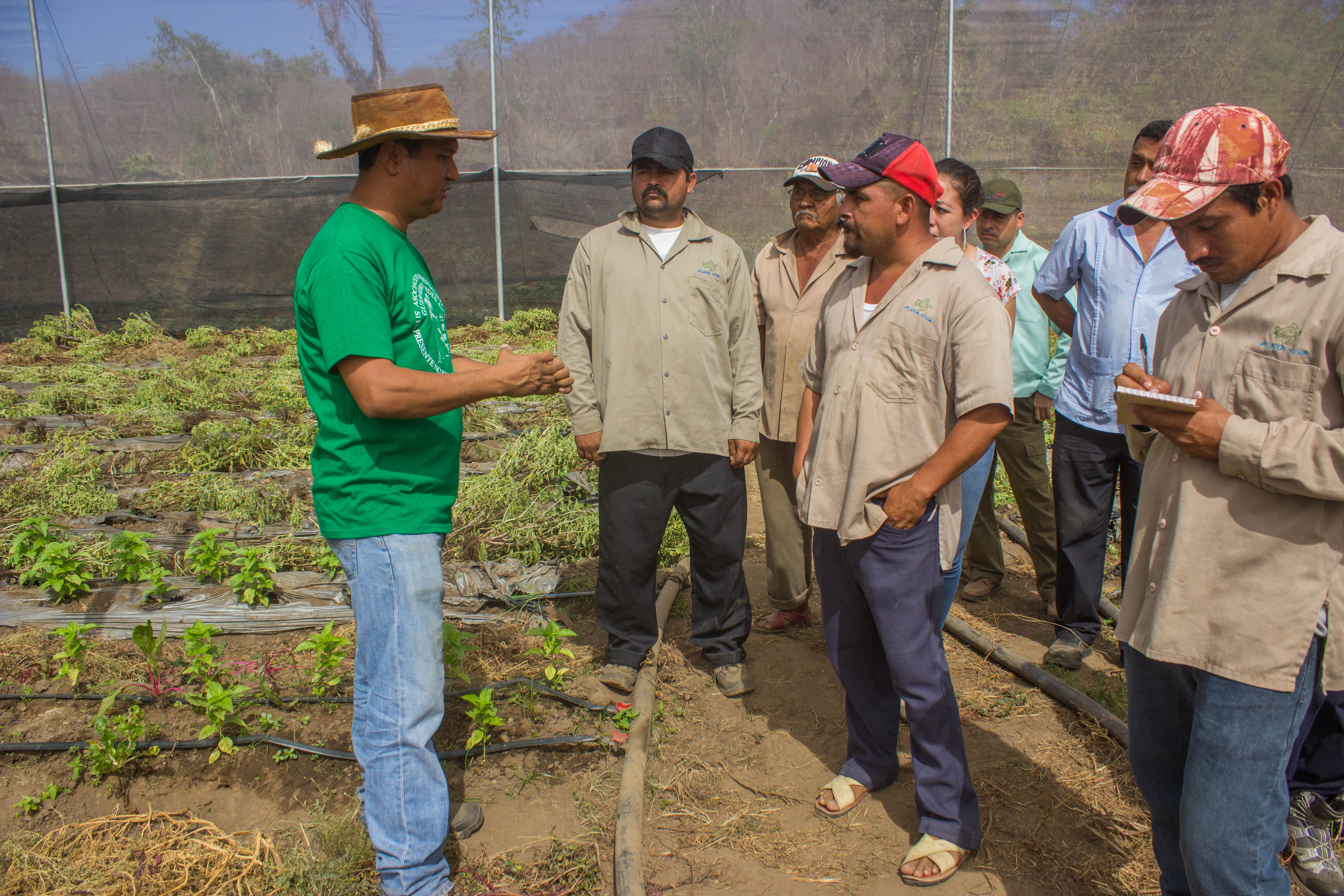
Q: Has your perspective changed about organic food or sustainable agriculture after having worked for Playa Viva. If yes, how? If no, why not?
Abel: Yes, because after trying different types of fruits and lettuces, I think it’s healthier because now I can invite my family to try this type of organic food. Our food that we grow is healthier than what’s available where I live—because all of the fruit that we have in Rancho Nuevo, all of it is grown with chemicals. Similarly, things like tomato and chile are also grown with chemicals. I would like it if we were all farming organically, because like that, you would see less disease and illness. It’s cleaner eating. […] I’ve brought some lettuce home for my family to try, and this type of lettuce specifically [points to lechuga tropical next to him], and my wife particularly loved it. She said it was delicious. My family had never tried it before, but they all really liked it.
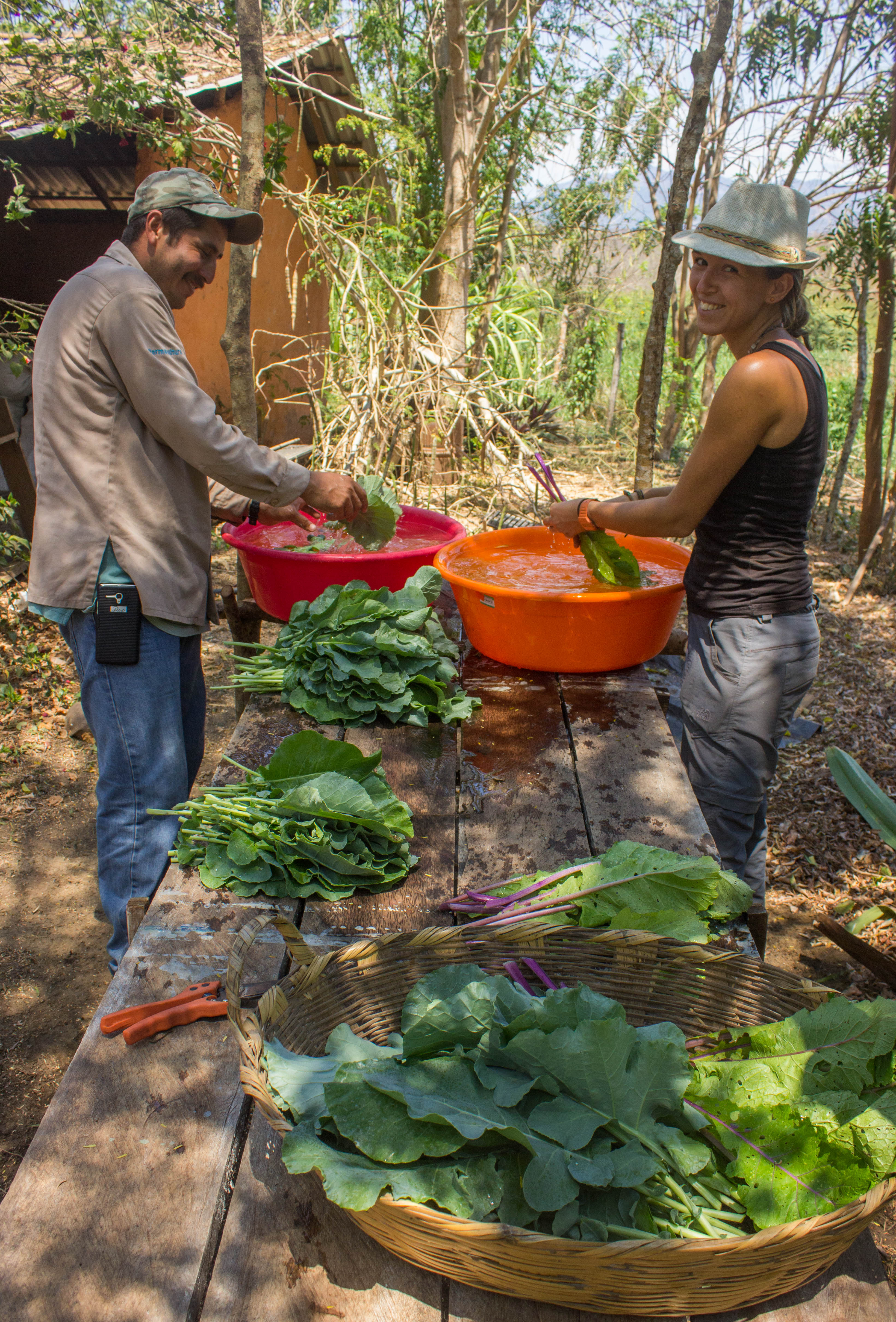
Güero: Yes, a lot. About food more than anything else. But yeah, if I myself grow something, it will be organic; for me, for us, because, well, it’s better … Like I told you before, I knew that it wasn’t good, but I didn’t know how bad [pesticides] were. I thought what they said about [pesticides] was just tontería [nonsense]. I didn’t understand really until I started going to courses … From that point on, I started talking with people who were already inside the organic movement and they helped me understand that what I was doing before wasn’t good. And now, my mind’s changed, now I think differently, and I think it’s good to change and to make others change as well, but it’s difficult. You can see here that [organic farming] is difficult, but you are eating something healthy, something clean, something that you know won’t harm you. But not there [in the town]; it’s different.
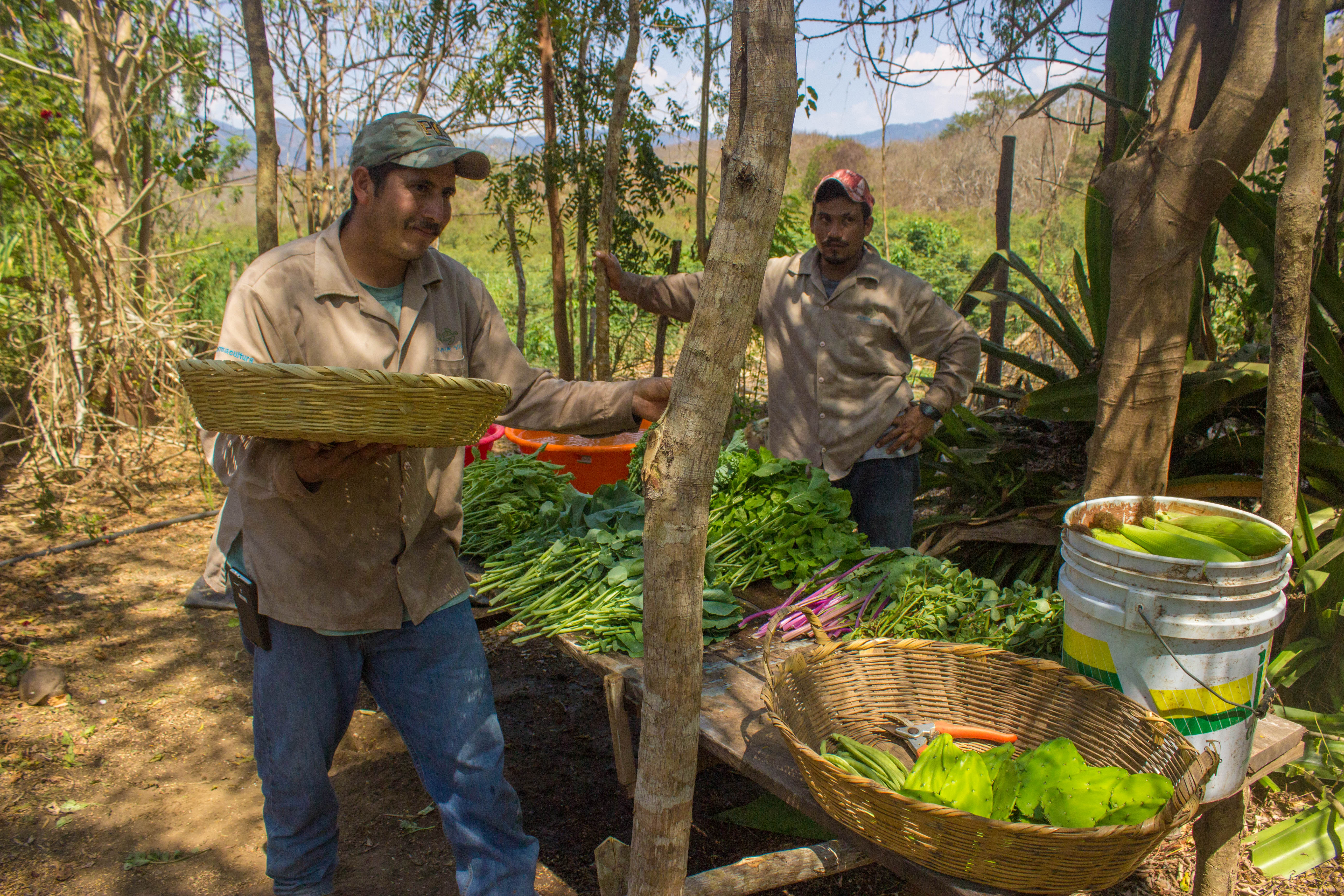
Q: Are the people in your town interested in organic farming? Do you see more people shifting to or practicing more organic farming in the future?
Abel: Well, I say yes because for example in my town, a lot people are already starting to grow organic sesame. In Rancho Nuevo a lot of people grow sesame, almost the majority of people who live there do, but they grow it with chemicals. I think that now there are the opportunities to grow organically, and from there they have the means to produce organically (through Gente Viva’s program). And I think it’s good because it’s a support—teaching them how to grow organically—and that support can give us more work in the organic sector. So, I think some people are going to be growing organic sesame with Nick (Gente Viva), and they like that. It would be a good change.
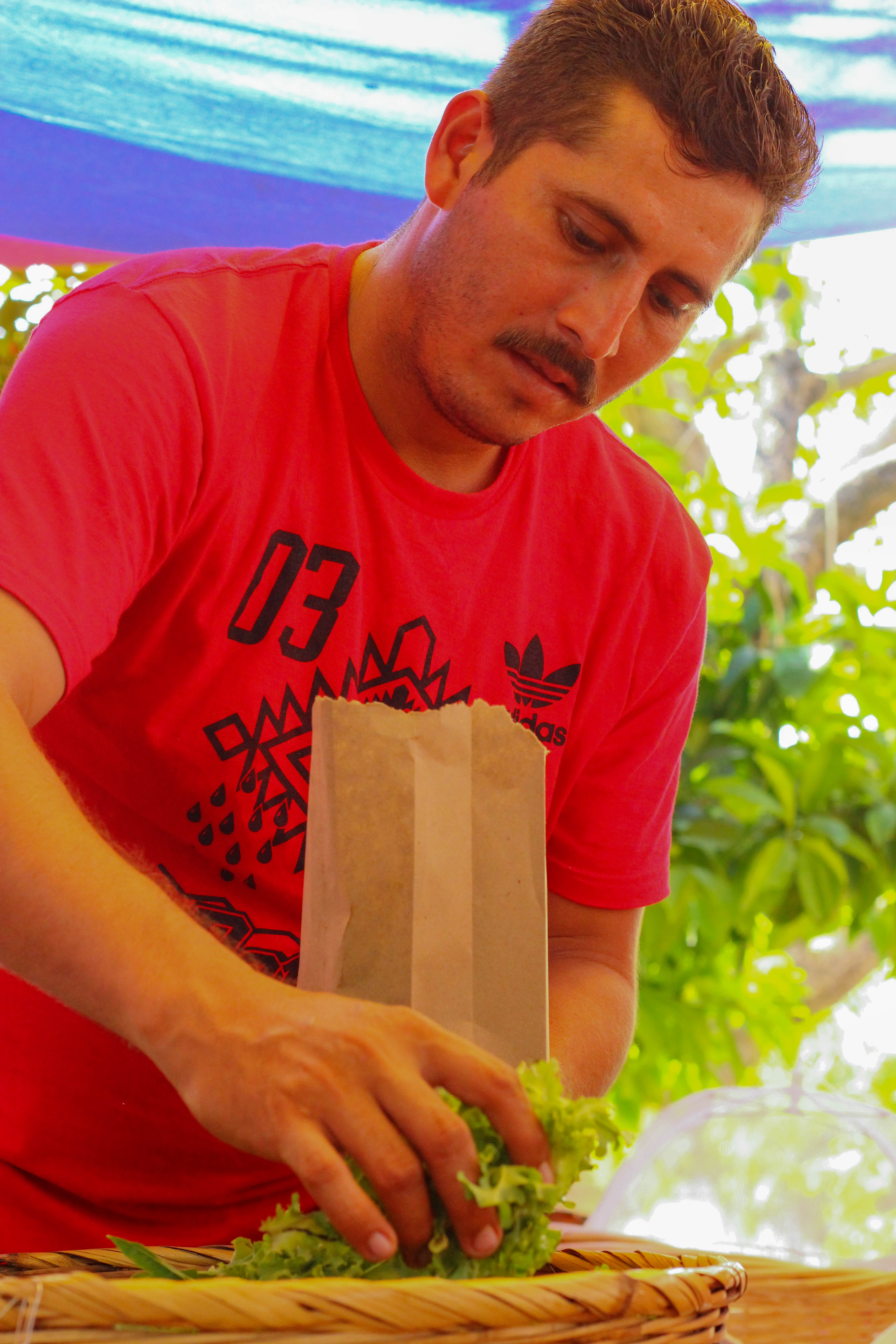
Güero: I think so, because in Rancho Nuevo there are already two or three people who are joining the organic farming group with Nick (Gente Viva) … The only problem here is that a lot of people don’t grow organically because they don’t have the means—in the sense that you have to invest a lot in this type of farming, more than anything the supplies, those are more expensive, and it’s more difficult. Now it is at least — later that could change, but that’ll take time … I think it’s going to happen little by little. Little by little you have to tell and teach people about it because if you don’t tell others what you see and know, no one is going to be encouraged to do so. They’ll say it’s cheaper to go to the market and buy what they’re going to eat rather than cultivating it themselves. But if you eat a tomato here, for example, you know that little tomato is clean, you know that there’s no chemicals. You can eat it right from the garden … there’s no chemicals or anything like that.
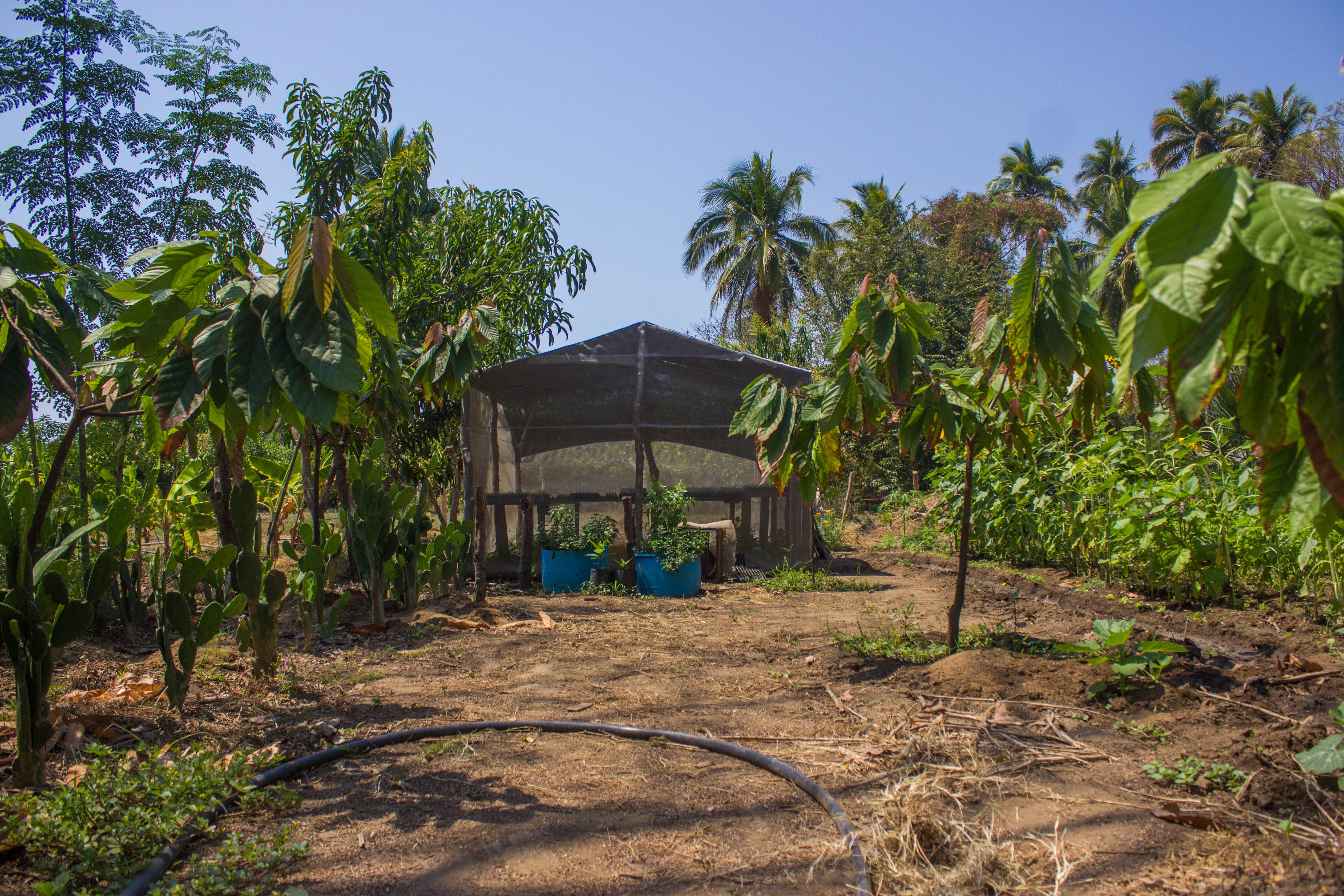
Q: Would you say that Playa Viva has been a transformational experience for you?
Abel: Yes. It’s a change. It’s a change in my awareness, my knowledge, to know more about what I’m learning here in food production. And I’ll also say it’s a change to improve economically for my family, because where I live there’s no work. I mean, wherever really in the countryside, you suffer when you live in the country where there are no job opportunities, but here [at Playa Viva] there are.
Güero: Yes … If I hadn’t been working for Playa Viva, I still wouldn’t know about organic farming … And for example, this opportunity I was given here in food production—I had never really worked in area where I was at the front of it, in charge. It’s a big responsibility but at the same time it’s an experience that you get accustomed to; you get used to carrying out your work that you yourself are responsible for. You’re responsible for carrying out everything and seeing it through … I really like experimenting with what I’m growing, that’s what I like the most. If it doesn’t work out one way, I’ll try another and see if it works out.
——
After speaking with Güero and Abel it was clear to me that working here at Playa Viva has impacted them. For Güero’s case, you see the transformation of someone who has been farming his whole life with chemicals, who now would never use pesticides again and sees the importance of eating organically. For Abel, you see someone without any farming experience, who was so taken by the leafy greens in the greenhouse that he wanted to learn more; now after given the opportunity, he sees and understands why growing and eating organically is so important.
What’s exciting is that this is just the beginning of everything: a change, a shift, a step in the right direction. We’re just beginning to scratch the surface — both in our work with Gente Viva, food production at Playa Viva, as well as understanding what kind of impact this work is having and will have in the future.
I’m left feeling overly inspired. On at least one level, we’ve provided at least two people with a livelihood as organic farmers who now are aware of the harmful effects of pesticides and herbicides. They can feed their families with healthy, organic produce, and share what they learn here with their community.
Lastly, I was taken aback at how proud they are and that what they do is a labor of love.
“It’s all grown with love. This is what I believe: if you grow something with love, it’s going to give you better results. It serves a plant well; watering it, including talking with it. For example, whenever I’m watering this lettuce, I’m always caressing it, giving it a loving look. I talk with them, I even sing to them.” — Abel
